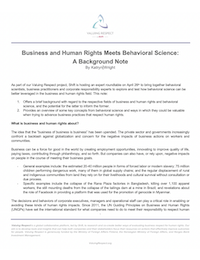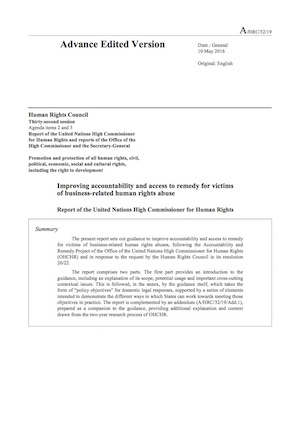Even where states and business do their best to implement the Guiding Principles, negative human rights impacts may still result from a company’s operations. Therefore, affected people need to be able to seek redress through effective judicial and non-judicial grievance mechanisms. The third pillar of the Guiding Principles sets out such mechanisms can be strengthened by both states and businesses:
- As part of their duty to protect, states must take appropriate steps to ensure that when abuses occur, victims have access to effective judicial and non-judicial state-based grievance mechanisms;
- Non-state-based grievance mechanisms should complement state-based mechanisms. This includes mechanisms at the operational level (meaning that companies are involved in implementing them), at a national level, or as part of multistakeholder initiatives or international institutions;
- All non-judicial grievance mechanisms should meet key effectiveness criteria by being legitimate, accessible, predictable, equitable, transparent, rights-compatible, a source of continuous learning, and (in the case of operational-level mechanisms) based on dialogue and engagement.


